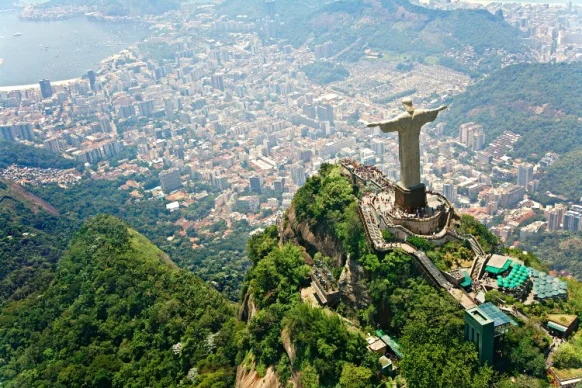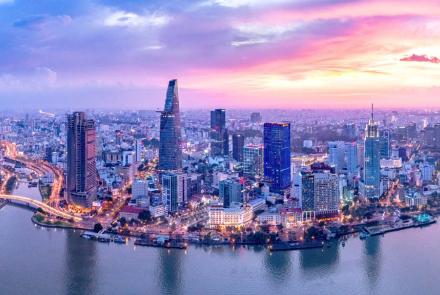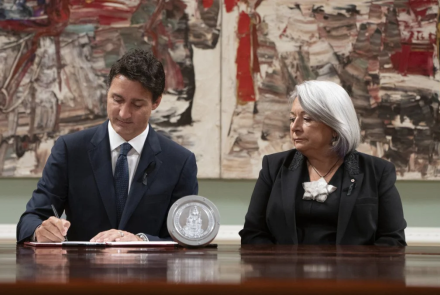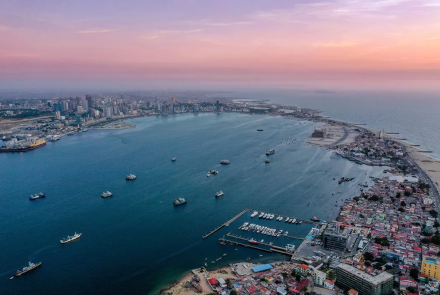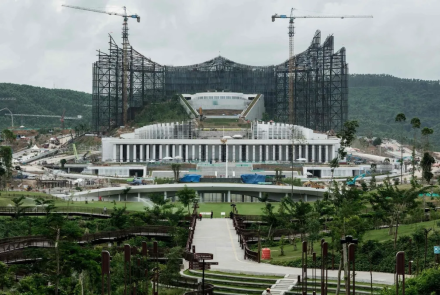Brazil Emerging as A Key Opinion Leader: Global South Revitalised
Brazil like other fellow members of the BRICS (Brazil, Russia, India, China, South Africa), continues to garner the world’s attention. Brazil is the 5th largest country in the world, in terms of 8,515,767 (3,287,955) in total kilometres (both land and maritime boundaries . Moreover, Brazil has a population of 217 million, making it home to the 6th largest population in the world. Also, Brazil is ranked number 1 out of 18 mega diverse countries, as the nation hosts between 15% to 20% of the world’s biological diversity. Furthermore, based on the data from figure 1, shows Brazil’s GDP per capital is projected to be $10,000 in 2024.
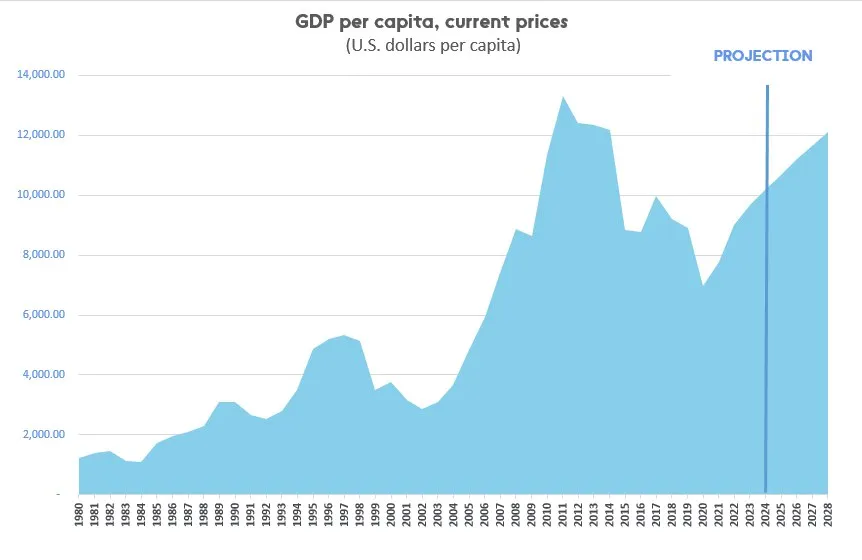
Figure 1 - Projected GDP Per Capita of Brazil (IMF, 2023)
Private debts, loans and debt securities form form 88.18% of the nation’s GDP in 2021 (figure 2).
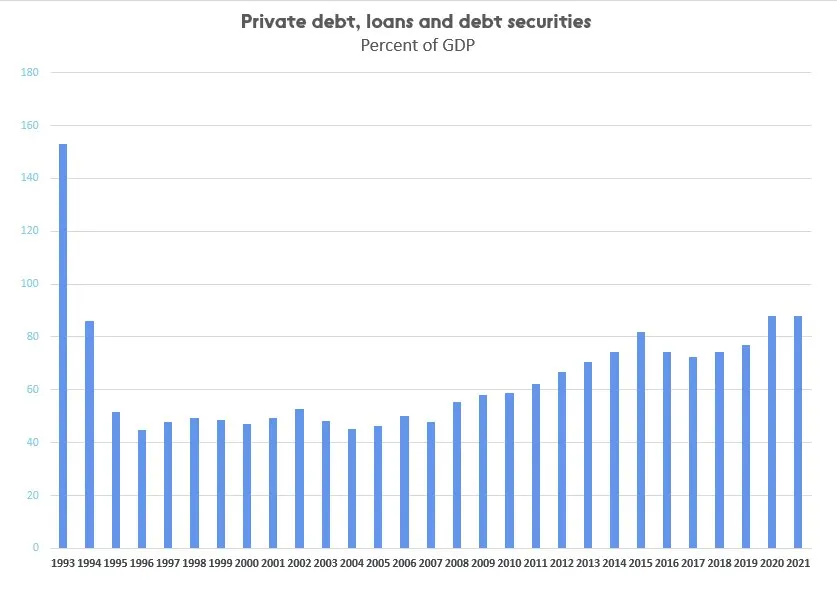
Figure 2 - Debts, Loans and Securities in Brazil between 1993 - 2021 (IMF, 2023)
Following the 2022 election victory of Luiz Inácio Lula da Silva, Brazil has undergone a rejuvenation process, both domestically and internationally.
From pursuing re-industrialisation policies domestically to the string of presidencies over a number of different regional and global organisations between now and 2025: Group of 20, The Southern Common Market/ Mercosur (consisting of Argentina, Brazil, Paraguay, Uruguay), The United Nations Security Council and the BRICS in 2025. Brazil is actively transitioning from neo-liberalism to neo-statism, which shapes not only a nation’s development, but its engagement globally.
Key Definitions:
The key characteristics of neo-liberalism can be listed here: low-tax, de-regulation, privatisation, free trade, patent laws, specialisation, no industrial policies and free inward and outward capital flows (Washington Consensus). In comparison, neo-statism involves a market-conforming but state-sponsored approach to economic and social development, whereby the state seeks to guide market forces in support of a national economic strategy. These attributes can be listed here: public-private partnerships, regulation, industrial policies, tax subsidiaries, tax policy, subsidisation, banking regulations, labour control and interest-rate management.
Domestic Economy:
Following Lula’s victory in the 2022 presidential elections, the new administration inherited a nation which was experiencing a severe economic crisis due to terrible economic and political decisions aggravated by the Covid-19 global pandemic. Brazil’s economic growth had been slow. In 2021, the country had the second lowest GDP growth among the BRICS countries, at 5.0%. This compared with 8.9% for India and 8.1% for China over the same period (World Bank, 2022) (figure 3).
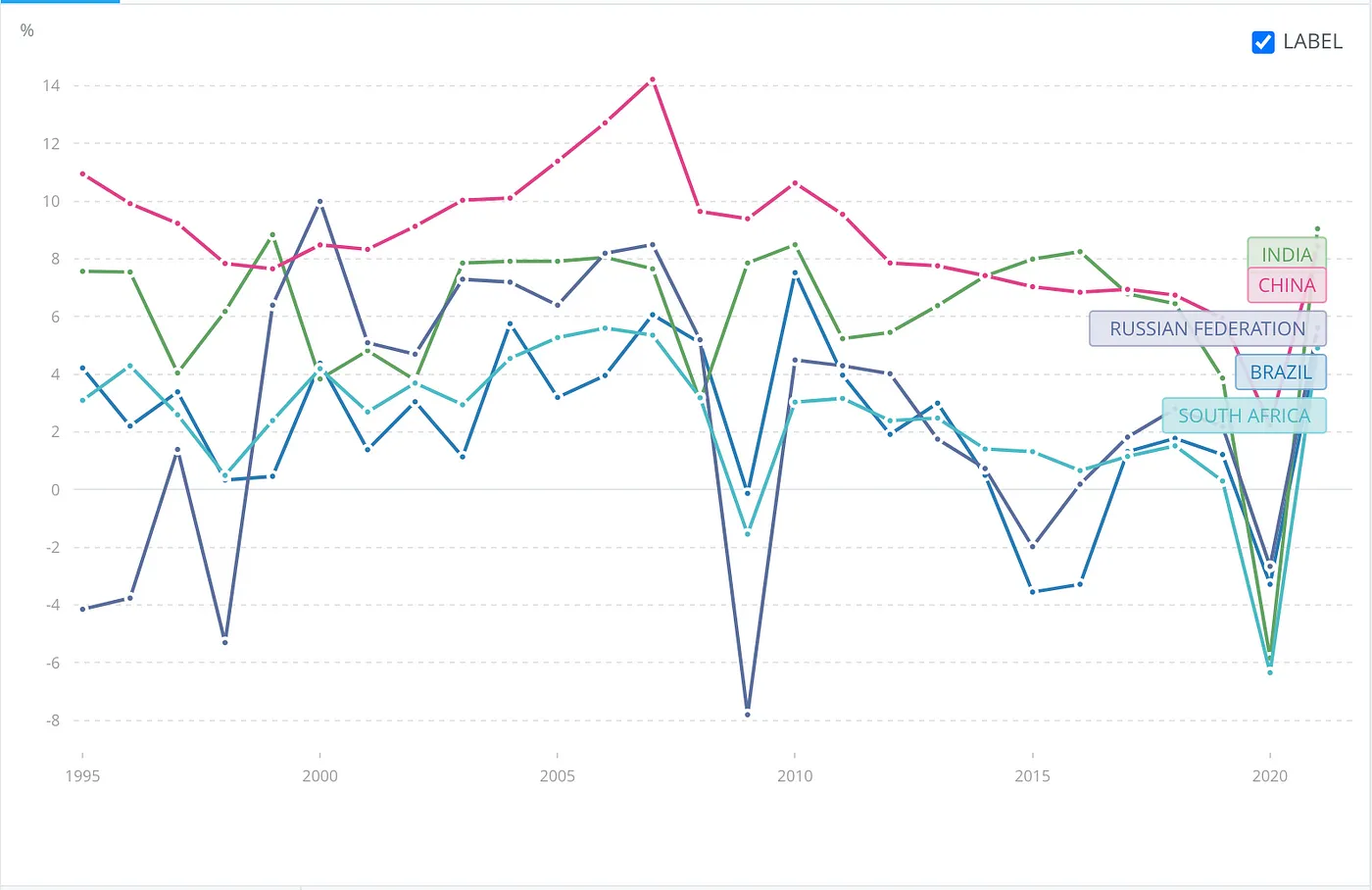
Figure 3 - Comparison of economic growth between Brazil and other BRICS members (World Bank, 2023)
The O.E.C.D. forecasted Brazil’s economic growth will be just 2.8% in 2022 and 1.2% in 2023 (OECD, 2022). The recent economic crisis had a severe effect on the Brazilian labour market. In 2021, the World Bank estimated that 14.4% of working age Brazilians were unemployed (figure 4). This indicates the unemployment rate has almost doubled since Lula left power after his previous two mandates (in 2010, when it was 7.3%).
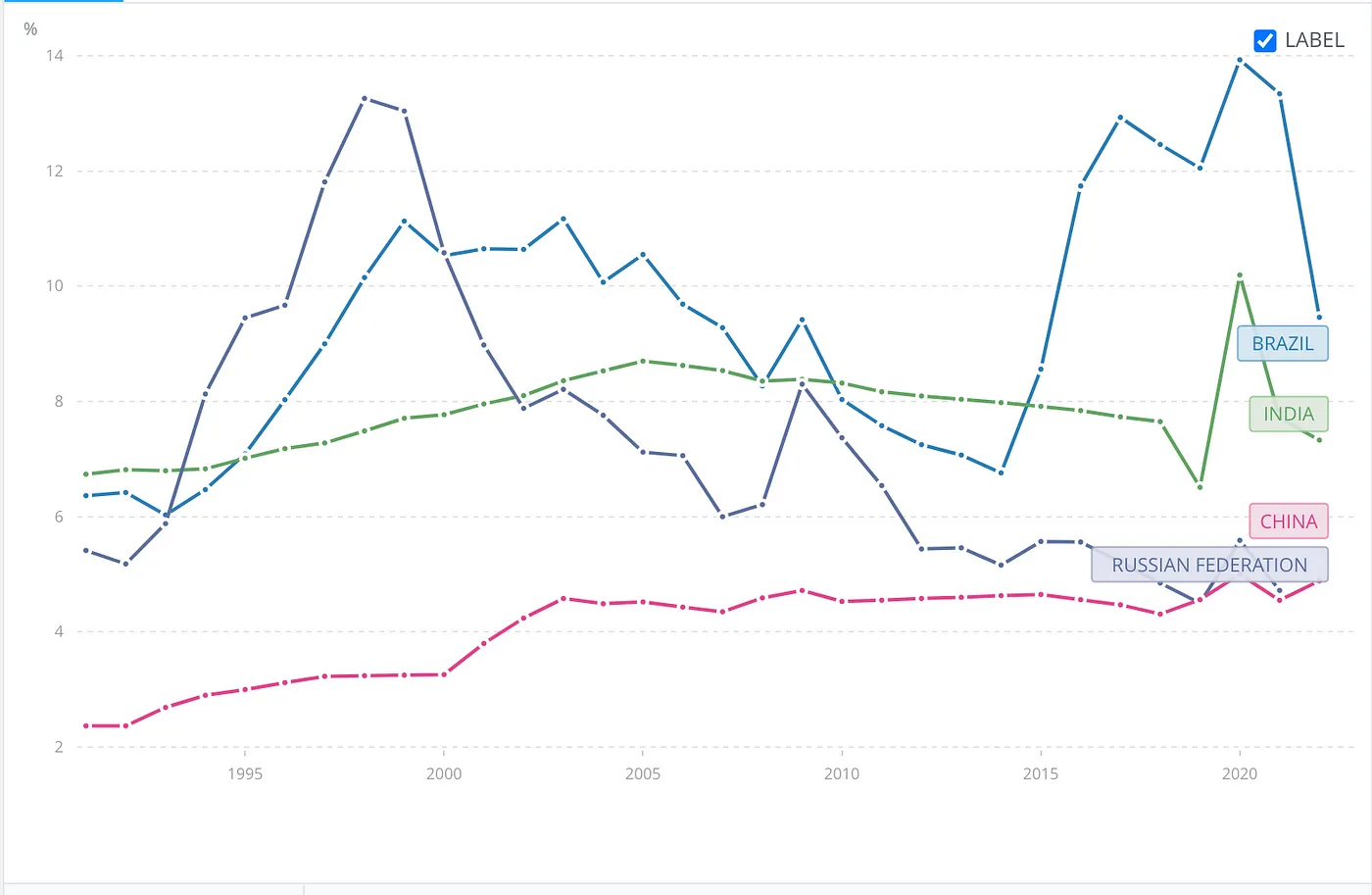
Figure 4 - Unemployment rate in Brazil between 1995 - 2020 (World Bank, 2023)
In recent years, Brazils currency (the real) has faced severe depreciations and the fact that the nation has been undergoing a massive de-industrialisation process (e.g., a situation where there is a decline in share of manufacturing employment, the value added in total employment and G.D.P. respectively, and a rising specialisation in primary goods) over the last two decades. In 1980, industry represented 26% of Brazil’s GDP; in 2018, it was only 11% . The Brazilian economy is highly dependent on commodities and services as a result of de-industralisation (exporting agricultural goods and raw minerals, placing Brazil in the periphery).
Lula’s first government enjoyed a boom in commodities, through which it was able to fund different programmes that helped to decrease poverty, hunger and inequality rates in Brazil. This included the conditional cash transfer redistributive programme — the Bolsa Família. However, in the case of 2023, things are far different today. While Brazil may benefit from a new boom in commodities, this has come with an increase in the cost of energy and fuel, rising cost of living conditions in many countries (including in the Global North).
Furthermore, the country imports the majority of its industrialised products, it is highly unlikely that commodities will grant Lula the same economic gains to address, the current domestic economic challenges as before. Moreover, in relation to Brazil’s inflation situation, the rate was controlled during Lula’s previous 2 terms in office (2004–2010). This can be attributed to the ‘Real Plan’ policy, created by the economic team of his predecessor Fernando Henrique Cardoso (1995–2003).
In addition, Brazil has no unified national tax system. Instead, the nation has five consumption taxes: IPI (for manufactured goods), ICMIS (goods and services), IPS and Cofins (social security contributions). Due to the overlap of these taxes between federal, state and municipal levels, which has also contributed to some of these negative trends highlighted here. Based on some recent data from World Bank (figure 5), it takes an average of 1,500 hours per year (or 187 eight-hour workdays) to comply with Brazilian tax laws.
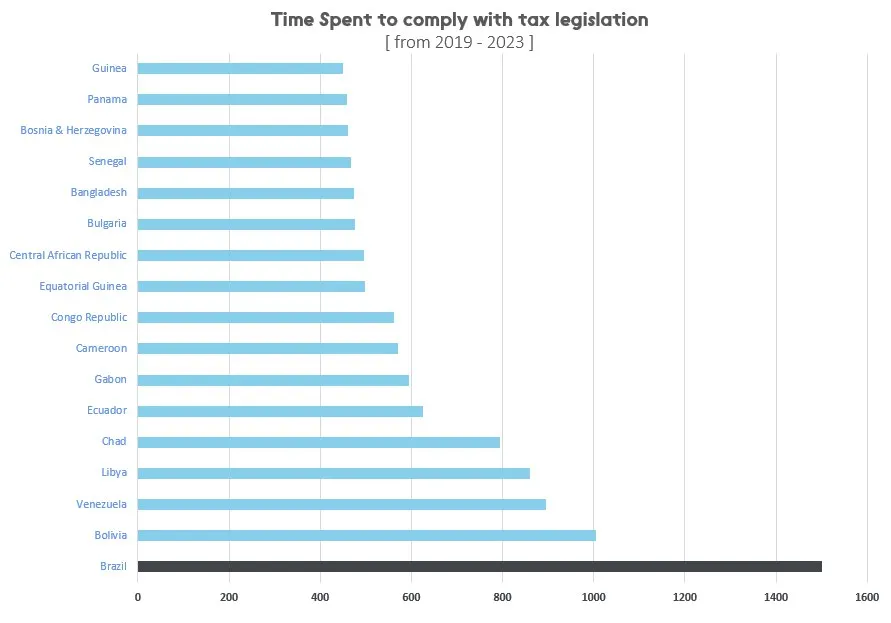
Figure 5 - Tax Legalisation (World Bank, 2023)
As a result of these factors, Lula has begun to place priority towards: developing infrastructures and logistics, key strategic industries (electric vehicles and aerospace) and new innovation policies. This would be in order to help facilitate new economic development and attract more F.D.I. (foreign direct investment).
- Infrastructure and logistics — July 11th 2023, the North-South Railway has now officially opened a freight terminal at Rio Verde in the state of Goiás, on the final 1537km section to be built between Porto Nacional in Tocantins and Estrela d’Oeste in São Paulo. “It took 30 years, but it’s finally ready,” Lula stated.
The 1600mm-gauge North-South Railway runs for 2257km from the port of Itaqui in the northeastern state of Maranhão to the port of Santos near the city of São Paulo in the southeast of Brazil. The line uses existing infrastructure to reach ports at both ends of the route. Construction began in 1986, but the majority of the work was completed after 2007, following decades of limited funding for the project, which is intended to facilitate the export of agricultural products such as soya beans, maize and cotton to world markets.
- Electric Vehicles — July 5th 2023: BYD Chinese electric vehicle manufacture BYD, has officially announced that it has finalised an agreement take over the site of the Former Ford motors plant in Bahia. The company will build three factories simultaneously in the Camaçari complex, 50 km from Salvador. This initial investment will be around more than R$3 billion ($620 million).
The complex will consist of three manufacturing units. One of the units will be dedicated to the production of chassis for electric buses and trucks. The second unit will produce hybrid and electric cars, with an estimated capacity of 150,000 units per year in the first phase. The third one will be focused on lithium and iron phosphate processing. Then this unit will serve the global market, leveraging on the existing port infrastructure at the location.
- Aerospace — May 9th 2023: the inauguration of the Gripen E aircraft production line in Brazil, is the only one for this aircraft outside of Sweden. This marks the delivery of one of the most significant contributions to the Gripen fighter ecosystem in Brazil, alongside firmly establishing Brazil as a major aviation hub globally.
The Embraer plant in Gavião Peixoto with the Gripen Design and Development Network (GDDN), the Gripen Flight Test Center (GFTC), and now the assembly line, is home to the development, production and testing stages of the aircraft. Since the signing of the contract to supply 36 Gripen fighters — 28 Gripen E (single seater) and 8 Gripen F (twin seater) — to the Brazilian Air Force in 2014, Saab and Embraer have been working together on the largest ongoing technology transfer project in the country.
- Innovation policies — July 7th 2023: The Ministry of Science, Technology and Innovation (MCTI) will invest R$41 billion over the next four years in the country’s new industrial policy. The resources, operated by Finep, are from the National Fund for Scientific and Technological Development (FNDCT) and will be invested in the form of credit and economic subsidy in instruments to stimulate innovation in companies, develop key local industries in the case of semiconductors, electric vehicles, aerospace and renewables.
- The executive secretary of the Ministry of Science, Technology and Innovation, Luis Fernandes explained that investments to support and encourage innovation in companies are divided into reimbursable resources (R$25 billion) and non-refundable resources (R$ 16 billion). In this case, the economic subsidy resources will be feature partnerships between Science and Technology Institutions, universities and companies for the development of technology and support for innovation.
Leadership:
In the case of Brazil’s foreign policy, the nation has recently assumed the rotational presidency of the regional South American trading bloc (Mercosur) and the nation’s return to both Unasur (Union of South American Nations) and CELAC (Community of Latin American and Carribean States). Moreover, Brazil is planning to increase its ties with many African nations and setting new trends in sustainability and renewable energy policy.
- Foreign Policy — July 10th 2023: since assuming the rotational presidency of Mercosur, Brazil has been leading negotiations for the ratification of a free trade deal between Mercosur and the European Union (EU). The new proposal seeks to ensure the implementation of a re-industrialization strategy in the country.
- One of the points of divergence is the opening of the government procurement market, which would allow European companies to compete on equal terms in public tenders in Brazil. This industry is valued at roughly $150 billion annually. President Lula considers that government purchases are an important industrial policy for Brazil.
- Brazil has sent copies of its counter-proposal to other members of Mercosur and plans to send to the E.U. in the next few weeks. The counter proposal will include: Greater margin of preference for Brazilian companies in competitions against foreign companies; advantages for national industry when there is a specific technological order; compensation criteria that the State may ask the winning bidder; remove the opening of the national government procurement market involving the health sector.
- Brazil steps up — May 5th 2023: Brazil has revitalised two regional organisations: Unasur (Union of South American Nations) and CELAC (Community of Latin American and Caribbean States), following the nation’s return to both organisations this year. It must be highlighted that, after the end of Lula’s previous mandates and Dilma’s tenure as president (2011–2016), Brazil’s participation in both Unasur and CELAC was declining. Brazil would eventually suspend its membership in both organisations during Bolsonaro’s tenure (2018–2022).
- In addition, Lula has arrived in Brussels to take part in a summit between CELAC and the E.U., which is scheduled to take place from Monday 17th July — July 18. The key topics to be covered at the summit will be: climate change and just and sustainable transition; inclusive and fair digital transition; citizen security and combating transnational crime; trade and sustainable development and global post-COVID-19 pandemic recovery.
- Relations with Africa — 11th June 2023: due to the absence of an engagement strategy of the previous administration, this resulted in Africa expanding ties with other nations such as China, Spain, India, Russia and Turkey and limited ties with Brazil. In order to try and expand relations, Lula plans to make at least two rounds of trips to the continent in the next few months, visiting eight countries.
- Prior to the 1990s, there was a great boom in the insertion of Brazilian goods in African countries, mainly machinery and equipment. These numbers are starting to increase again. This would be accompanied by the expansion in engineering services, generally linked to the presence of Brazilian civil construction companies.
- Identifying areas of beneficial collaboration between Brazil and Africa is: technical cooperation, training professionals, formatting public policies in relation to society and the environment, education, cultural exchange, innovation industries and media co-productions. Especially, considering Brazil like many other African nations have endured the same development trajectory of neo-liberalism. Moreover, other potential areas of expansion, Lula discussed in the case of Africa was, initiatives through development banks such as the African Development Bank and Brazil’s National Bank for Economic and Social Development (Banco Nacional de Desenvolvimento Econômico e Social/BNDES) for infrastructure development.
- Sustainability, Offshore Decommissioning — July 11th 2023: following the controversy over the handling of the decommissioned aircraft carrier NAe São Paulo, Brazil has taken a rare move towards sustainable ship recycling: state owned offshore oil giant Petrobras has announced plans for in-country scrapping of the P-32, an aging FPSO due for demolition. Recently earlier this year, Petrobras adopted a new policy on environmental and human rights in its supply chain. The policy includes selecting a final destination for decommissioned units to ensure that they are dismantled with a focus on sustainability. In particular, the policy mandates the recycling of vessels only in facilities equipped with dry-docks or impermeable surfaces with drainage systems, and this rules out old-fashioned beaching.
- Petrobras awarded the auction for P-32 to the steel company Gerdau S.A., in partnership with Ecovix shipyard. Petrobras’ plan was to direct the sale to the domestic market and inaugurate a new stage of the decommissioning industry in Brazil. According to Petrobras, this could be an opportunity for Brazil to establish itself in the sustainable recycling of vessels, a niche market with limited competition outside of Europe and finally ending the old practice of sending old vessels to South Asia and establishing a domestic industry. In addition, Gerdau, will use the scrap metal generated as raw material for steel production at its Charqueadas and Sapucaia do Sul mills. Especially, as Gerdau is the largest recycler of scrap metal in Latin America, turning more than 11Mt into steel annually, and 71% of the steel produced by the company comes from the recycling process.
- Renewable Energy — April 11th 2023: Brazil accounts for almost 7% of the planet’s renewable energy production — outpacing its 3% share of the global population and 2% share of global GDP — and has long been a leader in biofuels and hydropower technologies.
- Most notably, the Brazilian Energy Planning Agency’s (EPE) Energy Expansion Plan (PDE) for 2021–2031 indicates that renewable sources will remain a high priority in Brazil’s energy market, comprising about 50% of Brazil’s energy matrix between 2021 and 2031.
- Access to electricity across the country is almost universal and renewables meet almost 45% of primary energy demand, making Brazil’s energy sector one of the least carbon-intensive in the world as highlighted in figure 6.
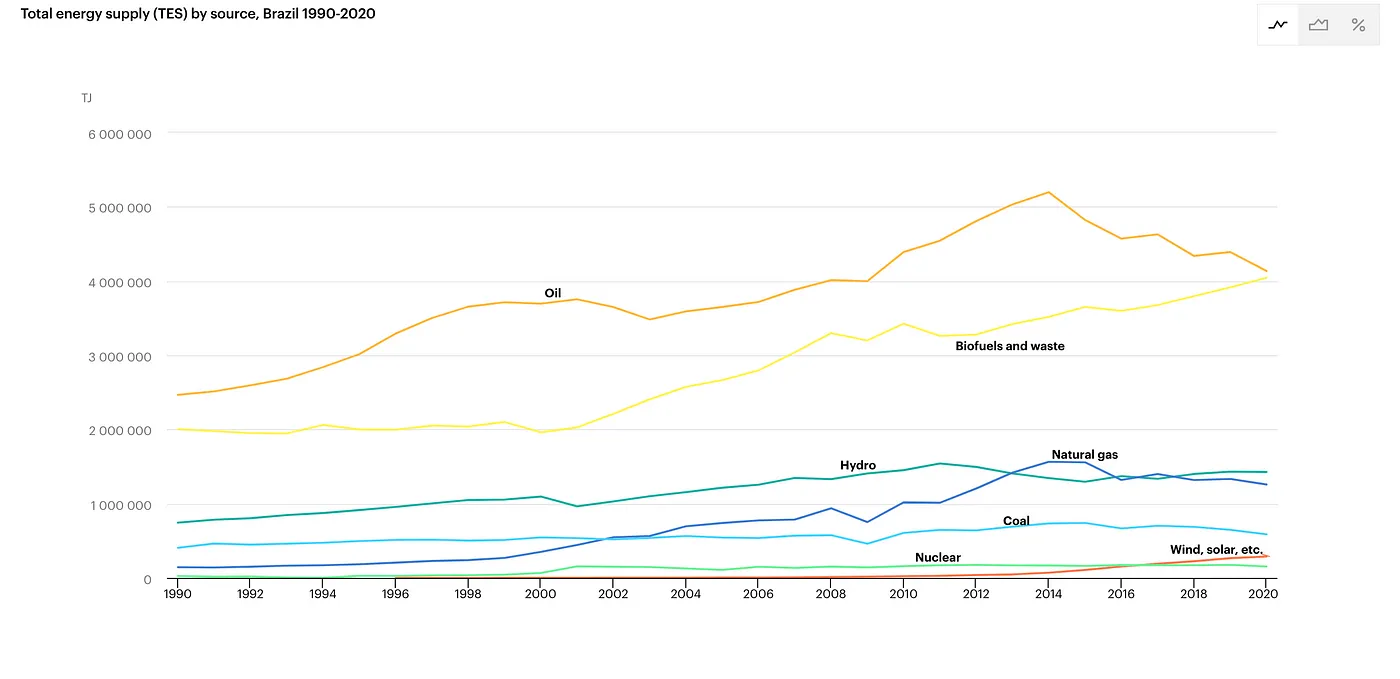
Figure 6 - Brazilian Energy Matrix between 1990 - 2020 (IEA, 2023)
- Total estimated investment in the energy sector through 2031 is $513 billion for the oil and gas sector and $101 billion for power generation and transmission.
Cultural lens:
In the case of the culture aspect of Brazil’s economic and foreign policy, the nation has began to embark on developing and supporting both its media industry and some of the nation’s top football clubs are increasing their presence in Africa.
- Audio-Visual industry — May 17th 2023: Brazil’s Fundo Setorial do Audiovisual, (its central subsidy fund), is investing a further RS1 billion for 2022 and another R$1 billion for 2023 into the audiovisual sector, making for a total financial injection for 2023 of R$4.8 billion ($972 million). Marche du Film panelists also take in Marcelo Calero, secretary of culture at the City of Rio de Janeiro which has also launched an international shoot rebate, and Ana Paula Repezza, business director at Apex-Brasil, the Brazilian Trade and Investment Promotion Agency.
- The industry suffered through the discontinuation of cultural policies, and film professionals are keen to return to a pre-Bolsonaro situation — with improvements and adjustments, which appears to be on the horizon.
- Football — June 15th 2023: There has been a recent trend of Brazil football clubs such as, Bragantino, Flamengo, Sao Paulo FC and Vasco De Gama, establishing scouting networks and signing young African players. For the clubs, this is a possibility to broaden their horizons in a new market and an alternative to attracting more promising players.
- The mission to capture good players in neighbouring South America nations has become more challenging. Especially, as European clubs have increasingly being attracting young South American players to their base, with the aim of finishing their development in Europe. This situation has resulted in Brazilian clubs to look towards Africa.
Critique:
Based on the three main topics covered, in the case of Brazil: domestic economy, leadership and culture, highlights crucially how Brazil is playing a key role in the new multipolar world.
Brazil, like many other developing nations, particularly in South America and Africa, once implemented import-substitution industrialisation, neo-liberalism and now is currently embarking on neo-statism (state-led capitalism). This would especially be crucial to reverse the effects of de- industrialisation. Brazil is attracting higher levels of F.D.I. in the areas of aerospace, electric vehicles, and developing policies towards innovation, this is fostering the necessary conditions for re-industrialisation and reduce unemployment.
Moreover, the lower house of the Brazilian congress just approved a set of tax reforms, which will merge all 5 consumption taxes into 2 value added-taxes (VATs), called CBS (Federal) and IBS (regional). This will result in companies and people only being taxed once, instead of cumulatively. These reforms will now be voted in the senate later this year. This reform will be crucial to making Brazil, an ideal nation for foreign direct investment in manufacturing and innovative industries, both domestically and internationally. Especially, as Brazil is projected to attract $96.9 million in foreign direct investments in 2024 (figure 7).
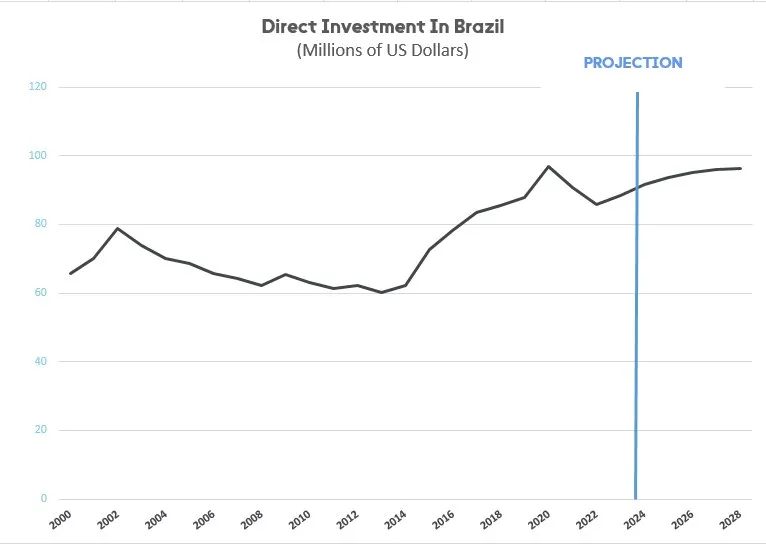
Figure 7 - Foreign Direct Investment into Brazil between 2000- 2028 (IMF, 2023)
As a result of Brazil changing its development trajectory, this has also strengthened its resolve abroad. Now, regarding the current on-going negotiations between Mercosur and the E.U., ensuring itself and other members of this trading group, don’t end up having unfavourable trade conditions. As this could result in all Mercosur members embarking on neo-liberalism through the backdoor (E.U. trying to lobby Brazil and other members to open up their procurement markets to E.U. firms), which could prevent industrialisation and implementing questionable climate commitments. Additionally, Brazil have cemented their leadership as a vocal member of BRICS, Unasur and CELAC, crafting new sustainable economic policies.
In the case of foreign policy, by Brazil increasing ties with Africa, this benefits Africa, due to similar development paths and close historical and cultural ties. Especially, with Brazil wanting to expand ties to promote joint collaborations in innovation, media co-productions, education, crafting development policies and supporting infrastructure development. Moreover, Brazil plans to invite the African Union to the G20 summit, once it assumes the presidency of the organisation later this year.
Brazil continues to be a world leader in generating energy from renewable sources, which can greatly spur industrialisation. In addition, by establishing a local industry for de-commissioning old ships, this will not only provide new jobs and source of raw materials, but also start a new trend for other developing nations.
Culturally, by Brazil developing its domestic audio-visual industry, this will help promote the nation’s culture abroad and increase ties with Africa and other nations through supporting co-productions. Moreover, due to Brazil being a footballing powerhouse globally, by attracting African players, this will further help develop African players, strength the Brazilian league and gain attraction of African viewers and potential investors.
Overall, following the return of Lula as president, Brazil in comparison to previous administrations, is enacting independent, geo-politically coordinated economic mandates and initiatives, which will spur additional growth for both state institutions and Brazilians. As Brazil is holding a number of presidencies in regional and multilateral groups, this marks the significant role of Brazil shaping the multipolar world. In addition, I would like to also proposal, the nation should aim to establish a national sovereign wealth fund in order to ensure the nation’s financial security and ability to invest and take part in development and sustainability projects in the global south.


